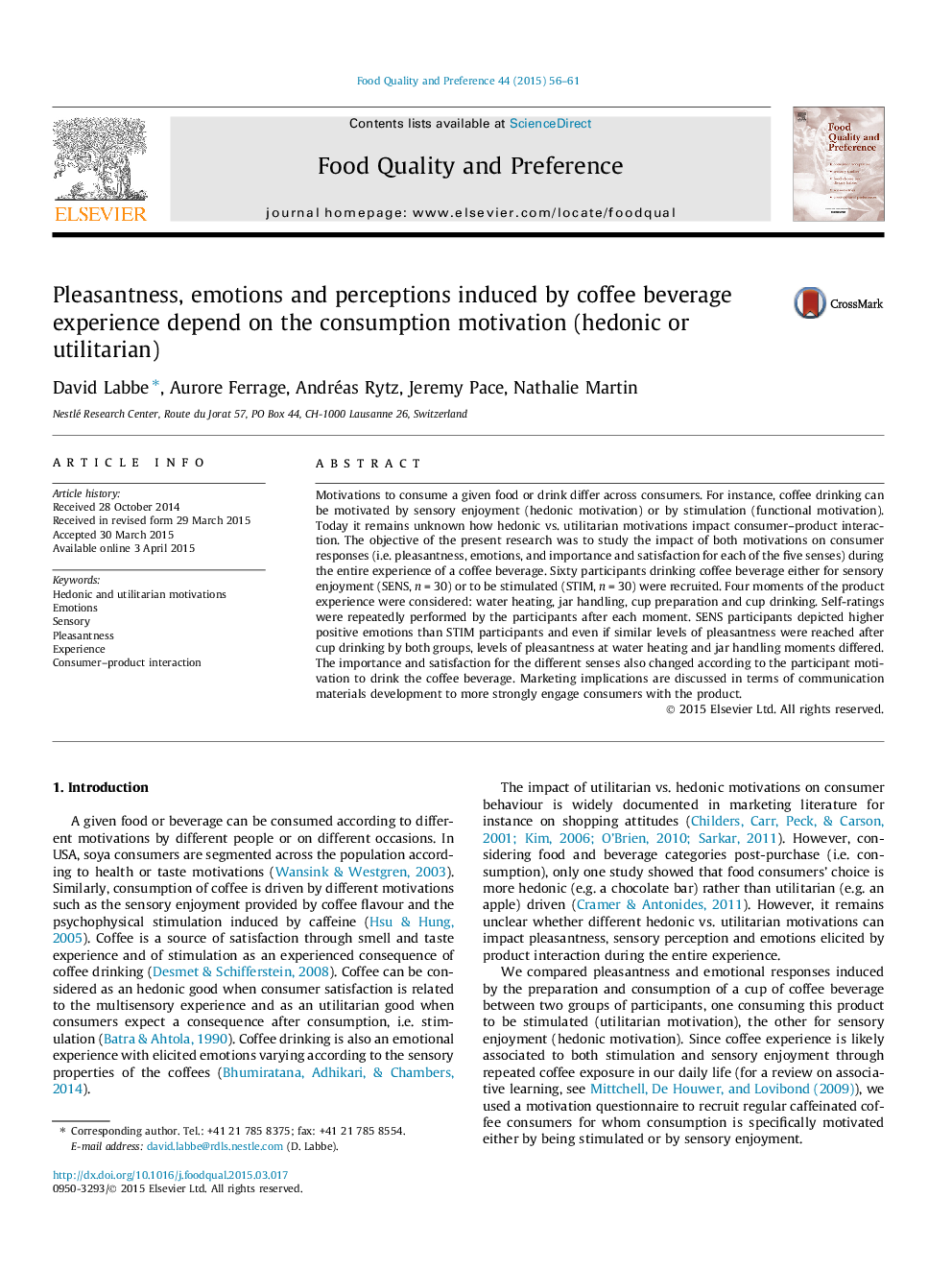| Article ID | Journal | Published Year | Pages | File Type |
|---|---|---|---|---|
| 6261332 | Food Quality and Preference | 2015 | 6 Pages |
â¢We explored the impact of motivation on consumer-coffee beverage interaction.â¢Consumer response was measured in a realistic context along the entire experience.â¢Hedonic motivation led to higher positive emotions all along the experience.â¢Cup drinking was the most pleasant moment when motivation for coffee is utilitarian.â¢Sensory experience was more importance when motivation for coffee was hedonic.
Motivations to consume a given food or drink differ across consumers. For instance, coffee drinking can be motivated by sensory enjoyment (hedonic motivation) or by stimulation (functional motivation). Today it remains unknown how hedonic vs. utilitarian motivations impact consumer-product interaction. The objective of the present research was to study the impact of both motivations on consumer responses (i.e. pleasantness, emotions, and importance and satisfaction for each of the five senses) during the entire experience of a coffee beverage. Sixty participants drinking coffee beverage either for sensory enjoyment (SENS, n = 30) or to be stimulated (STIM, n = 30) were recruited. Four moments of the product experience were considered: water heating, jar handling, cup preparation and cup drinking. Self-ratings were repeatedly performed by the participants after each moment. SENS participants depicted higher positive emotions than STIM participants and even if similar levels of pleasantness were reached after cup drinking by both groups, levels of pleasantness at water heating and jar handling moments differed. The importance and satisfaction for the different senses also changed according to the participant motivation to drink the coffee beverage. Marketing implications are discussed in terms of communication materials development to more strongly engage consumers with the product.
